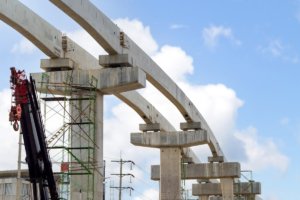 Introduction to Infrastructure Project Estimator:
Introduction to Infrastructure Project Estimator:
Infrastructure projects, from highways to bridges, tunnels to water systems, are the backbone of modern society. However, these projects come with complex challenges in design, planning, and cost management. This is where the role of an Infrastructure Project Estimator becomes indispensable. Estimators provide detailed cost analyses, ensuring that the project stays on budget, meets deadlines, and adheres to safety standards. Whether you’re a contractor, project manager, or investor, having a reliable infrastructure project estimator on board can be the difference between a successful project and one fraught with financial pitfalls.
In this article, we will delve deep into the responsibilities, methodologies, and the value that an infrastructure project estimator brings to large-scale developments.
Understanding the Role of an Infrastructure Project Estimator
An infrastructure project estimator is responsible for analyzing project plans and specifications to predict the total costs required to complete an infrastructure project. Their main goal is to develop accurate cost estimates, which involve a detailed breakdown of material costs, labor, equipment, permits, and unforeseen expenses. Their expertise not only helps contractors and stakeholders understand the project’s financial scope but also ensures profitability without sacrificing quality or compliance.
Estimators typically work on projects involving:
- Transportation infrastructure (roads, bridges, tunnels, railways)
- Utilities (water treatment plants, pipelines, electricity grids)
- Public buildings (schools, hospitals, government offices)
- Environmental projects (flood protection systems, parks)
- Communication networks (fiber optics, telecommunication towers)
A thorough understanding of each type of infrastructure project allows an estimator to tailor their approach to the specific demands of the job, ensuring both precision and accuracy.
Key Responsibilities of an Infrastructure Project Estimator
An infrastructure project estimator undertakes several vital tasks throughout the project lifecycle. These include:
1. Analyzing Project Plans and Documentation
The first step in an estimator’s process is reviewing the architectural blueprints, engineering designs, and detailed project documents. They must understand the scale, complexity, and specific requirements of the project to determine the resources required.
2. Cost Research and Data Collection
An estimator must stay updated on current material costs, labor rates, and equipment prices. This requires research and the ability to work with suppliers, subcontractors, and other vendors. Factors like location, availability of resources, and environmental considerations will also affect pricing, which must be accounted for in the estimate.
3. Risk Assessment and Contingency Planning
No infrastructure project is without risk. Estimators are responsible for identifying potential obstacles that could cause delays or increase costs, such as bad weather, unforeseen geological conditions, or supply chain disruptions. A well-prepared estimator includes contingency plans and budgets for these risks, helping ensure the project doesn’t spiral out of control financially.
4. Labor Cost Estimation
Labor is often one of the most significant costs in any infrastructure project. Estimators need to assess the number of workers required, their skill levels, and the time it will take to complete different phases of the project. This involves liaising with contractors, understanding union rules, and accounting for overtime or specialized skills that might be necessary.
5. Creating Comprehensive Cost Reports
Once the data is collected, an estimator generates a comprehensive cost report that breaks down each element of the project. This report includes not just raw materials and labor but also ancillary costs like permits, taxes, equipment rentals, and administrative expenses. The estimator’s job is to make sure that the final estimate is as transparent and comprehensive as possible.
Importance of an Infrastructure Project Estimator
1. Budget Control and Financial Accuracy
Accurate cost estimation is the foundation of financial planning for any infrastructure project. An infrastructure project estimator ensures that the budget is realistic and helps avoid cost overruns, which are common in large-scale projects. By offering precise cost predictions, estimators help stakeholders avoid surprises that could jeopardise project completion.
2. Efficiency in Resource Allocation
An infrastructure project estimator ensures that the project makes the best use of available resources. By estimating the required materials, workforce, and equipment, the estimator helps avoid the waste of time and money. Additionally, effective resource allocation can lead to quicker project completion, making estimators crucial for timely delivery.
3. Risk Mitigation
Infrastructure projects are subject to various uncertainties, such as fluctuating market prices, logistical issues, and environmental challenges. An experienced estimator will identify potential risks in advance and factor them into the cost analysis. This foresight allows for better contingency planning, reducing the likelihood of delays or cost escalations.
4. Improved Decision-Making
Contractors, government bodies, and investors rely heavily on the insights provided by the infrastructure project estimator. The detailed breakdowns of costs, risks, and resource requirements offer a clear road map, allowing stakeholders to make informed decisions at every stage of the project.
5. Compliance with Legal and Environmental Standards
Infrastructure projects often have stringent regulations surrounding safety, environmental sustainability, and local building codes. An estimator takes these regulations into account when creating the project budget, ensuring that sufficient funds are allocated to meet legal requirements. This prevents costly fines or delays due to non-compliance.
Advanced Tools and Technologies Used by Infrastructure Project Estimators
As the construction industry evolves, so do the tools and techniques used by infrastructure project estimators. Traditional estimation methods relied heavily on experience and manual calculations, but modern estimators now utilise advanced technology to enhance precision.
1. Building Information Modelling (BIM)
BIM is one of the most powerful tools in infrastructure cost estimation. It allows estimators to create digital representations of the project, offering detailed insights into materials, timelines, and costs. BIM can simulate different scenarios, enabling estimators to identify potential problems and optimize resource allocation before construction begins.
2. Cost Estimation Software
Software such as Pro Est, Plan Swift, and Sage Estimating provide estimators with an array of features that streamline the estimating process. These programs can analyze data, track costs, and produce detailed reports, all while reducing human error.
3. Drones and Geo-spatial Technology
For projects like roads and bridges, infrastructure project estimators may use drones or geospatial technologies to gather topographical data. This information helps in estimating earthwork, drainage systems, and other site-specific requirements.
The role of an Infrastructure Project Estimator is crucial to the success of any large-scale infrastructure project. From predicting costs to mitigating risks and ensuring compliance, an estimator’s expertise allows projects to run smoothly, stay on budget, and meet all regulatory requirements. Whether using modern tools like BIM or drawing from years of hands-on experience, infrastructure project estimators are the unsung heroes who keep projects on track.
In a world where infrastructure forms the foundation of our daily lives, the importance of accurate cost estimation cannot be overstated. For contractors, government agencies, and private investors, having a skilled infrastructure project estimator is essential to ensuring that projects are completed on time and within budget, providing the necessary infrastructure for future generations.
Are you looking for the best estimating services in USA?
Look no further than “https://zionestimating.com”
They are offering top-notch services like;
- Construction/cost estimation
- Budget planning
- Material takeoff
- Equipment estimation
and further more!!!
Here are some more information for your convenience:
Phone no. : +1 718-427-9941 || +1 562-383-6177
Email: [email protected]
Visit their blogs and site
https://zionestimating.com for the latest updates and service tips!
